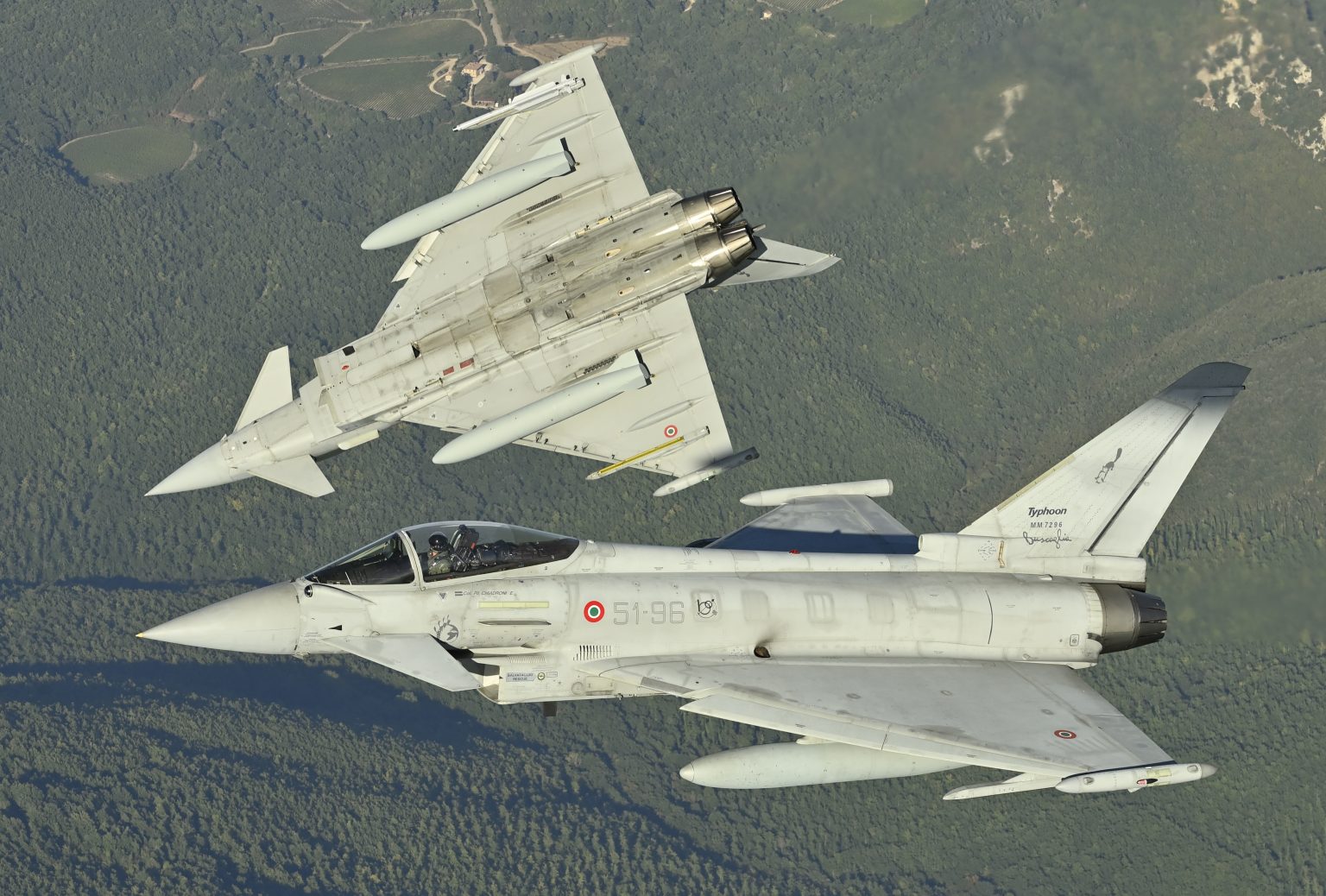The Italian Defence Ministry has officially approved the acquisition program for 24 new Eurofighter Typhoon fighter jets, designated as F-2000, for the Italian Air Force (Aeronautica Militare, AM). In a recent submission to the Italian parliament, Defence Minister Guido Crosetto presented a draft resolution seeking approval for the acquisition and the technical-logistical support of the entire fleet. While specific details on delivery timelines and budgets were not provided, this procurement marks a significant enhancement in the capabilities of the Italian Air Force. These new aircraft are expected to replace the currently operational Typhoon Tranche 1 models progressively. The incoming jets will meet the Next Generation (NG) standard, incorporating a suite of advanced technologies.
Key features include a new Large Area Display (LAD), a next-generation mission computer, a high-performance AESA CAPTOR-E Mk2 (ECRS Mk2) radar, an updated electronic self-protection system, and the ability to control and manage loyal wingman drones. The Euroradar Captor is a next-generation mechanical multi-mode pulse Doppler radar designed for the Eurofighter Typhoon. Development of Captor led to the Airborne Multirole Solid State Active Array Radar (AMSAR) project which eventually produced the CAESAR (Captor Active Electronically Scanned Array Radar), now known as Captor-E. This strategic acquisition aims to bolster the operational capabilities of the AM, serve as a bridge towards the Global Combat Air Programme (GCAP), and maintain production volumes at the Leonardo Aircraft facility in Caselle.
The Eurofighter Typhoon, a European multinational twin-engine, supersonic, canard delta wing, multirole fighter, was originally designed as an air-superiority fighter. It is manufactured by a consortium comprising Airbus, BAE Systems, and Leonardo, operating under the joint holding company Eurofighter Jagdflugzeug GmbH. The NATO Eurofighter and Tornado Management Agency, representing the UK, Germany, Italy, and Spain, oversees the project and serves as the primary customer. Development of the Eurofighter Typhoon began in 1983 under the Future European Fighter Aircraft program, a collaborative effort among the UK, Germany, France, Italy, and Spain. Disagreements over design authority and operational requirements led France to exit the consortium and develop the Dassault Rafale independently. The name “Typhoon” was adopted in September 1998, coinciding with the signing of the first production contracts.
The Typhoon is a highly agile aircraft, designed for effective dogfighting in combat. Over time, production models have been increasingly equipped for air-to-surface strike missions and compatibility with a diverse array of armaments and equipment, including Storm Shadow, Brimstone, and Marte ER missiles. The Typhoon made its combat debut during the 2011 military intervention in Libya with the UK’s Royal Air Force (RAF) and the Italian Air Force, performing aerial reconnaissance and ground-strike missions. It has since become the primary air-defense aircraft for many of its customer nations. Germany is to replace the Eurofighter with the New Generation Fighter (NGF), co-developed with France and Spain. The Global Combat Air Programme is a ‘6th Generation’ fighter envisioned as a replacement for the RAF and Italian Air Force, part of the UK’s wider Future Combat Air System.
As of December 2022, Italy operates 94 out of the 96 Eurofighter EF-2000 Typhoons ordered, with the final Tranche 3A aircraft delivered in 2020. The additional 24 aircraft, ordered on July 8, 2024, for 7.5 billion Euros, will be stationed across several Italian air bases, including Grosseto Air Base, Gioia del Colle Air Base, Trapani Air Base, Istrana Air Base, and Pratica di Mare Air Base. These units will support various fighter squadrons, enhancing Italy’s aerial defense and operational capabilities. The acquisition of these 24 new Eurofighters underscores Italy’s commitment to maintaining a robust and modern air force, capable of meeting contemporary and future defense challenges.
















